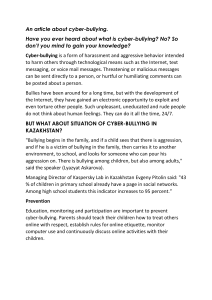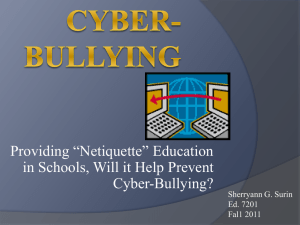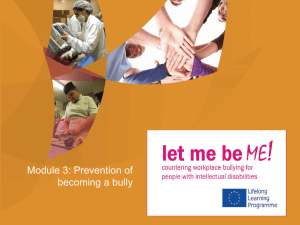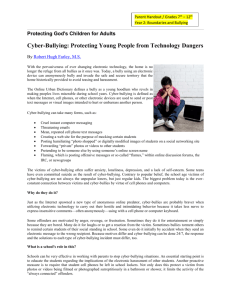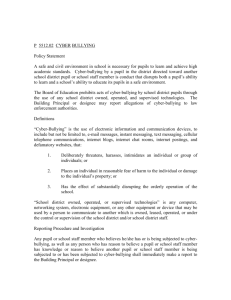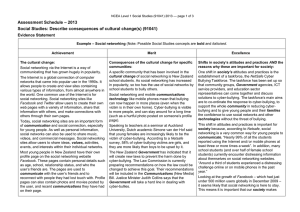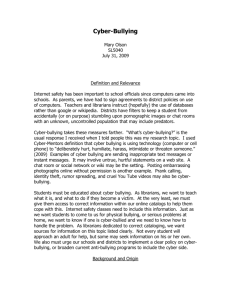It Starts at Home
advertisement
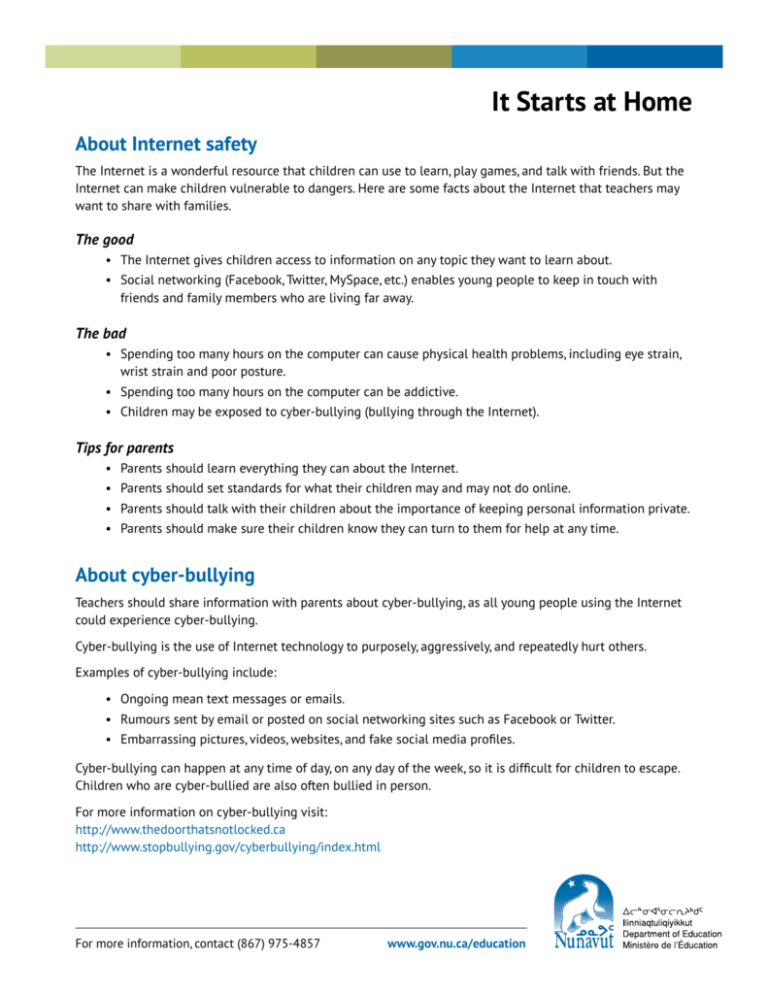
It Starts at Home About Internet safety The Internet is a wonderful resource that children can use to learn, play games, and talk with friends. But the Internet can make children vulnerable to dangers. Here are some facts about the Internet that teachers may want to share with families. The good • The Internet gives children access to information on any topic they want to learn about. • S ocial networking (Facebook, Twitter, MySpace, etc.) enables young people to keep in touch with friends and family members who are living far away. The bad • S pending too many hours on the computer can cause physical health problems, including eye strain, wrist strain and poor posture. • Spending too many hours on the computer can be addictive. • Children may be exposed to cyber-bullying (bullying through the Internet). Tips for parents • Parents should learn everything they can about the Internet. • Parents should set standards for what their children may and may not do online. • Parents should talk with their children about the importance of keeping personal information private. • Parents should make sure their children know they can turn to them for help at any time. About cyber-bullying Teachers should share information with parents about cyber-bullying, as all young people using the Internet could experience cyber-bullying. Cyber-bullying is the use of Internet technology to purposely, aggressively, and repeatedly hurt others. Examples of cyber-bullying include: • Ongoing mean text messages or emails. • Rumours sent by email or posted on social networking sites such as Facebook or Twitter. • Embarrassing pictures, videos, websites, and fake social media profiles. Cyber-bullying can happen at any time of day, on any day of the week, so it is difficult for children to escape. Children who are cyber-bullied are also often bullied in person. For more information on cyber-bullying visit: http://www.thedoorthatsnotlocked.ca http://www.stopbullying.gov/cyberbullying/index.html For more information, contact (867) 975-4857 www.gov.nu.ca/education
